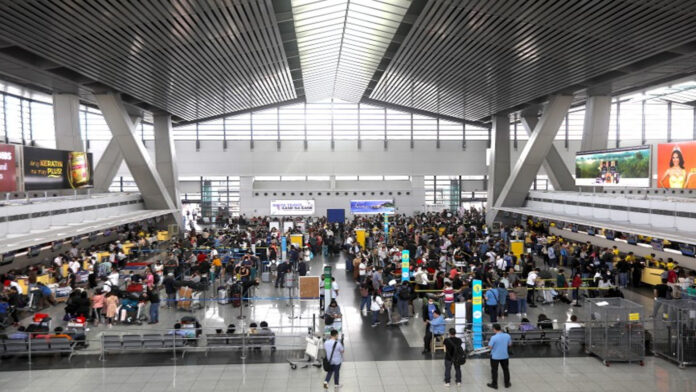San Jose del Monte City Representative Florida Robes on Wednesday filed a resolution asking the House leadership to direct the House Committee on Good Government and Public Accountability to conduct an inquiry on the reported malfunction and shutdown of the new air traffic system at the Ninoy International Airport (NAIA) last Jan. 1.
In filing House Resolution No. 672, Robes, who was among the 65,000 passengers affected by the airspace shutdown, said she wants to know from officials of the Department of Transportation (DOTr) how the Communications, Navigation and Surveillance System for Air Traffic Management (CNS/ATM) malfunctioned despite its inauguration only in 2018.
“The new CNS/ATM works by sending satellite signals to aircraft transponders and by using transponder transmissions to determine the precise location of aircrafts in our airspace, and its shutdown posed serious threats to aviation safety, economic losses to tourism and the aviation industry, and leaving thousands of inbound and outbound flight passengers stranded,” Robes said in a statement.
She also noted that airspace monitoring also involves national security, and has an impact on investor confidence.
“We are supposed to recover economically. As a legislator, this was nowhere in aid of the country’s economic recovery,” said Robes, who incidentally chairs the House Committee on Good Government and Public Accountability.
Among the focus of the House resolution is the maintenance of the new CNS/ATM system, as well as presence or absence of a back-up or contingency plan.
“There should be foresight in predicting situations such as the power outage. The resolution is not limited to the UPS or uninterruptible power supply. The resolution will also look into how the project was delayed for this long,” the lawmaker said.
The new CNS/ATM was funded through a loan from the Japan International Cooperation Agency (JICA) with local counterpart funding under the New Communications, Navigation and Surveillance/Air Traffic Management Systems Project between the Philippine and Japanese governments that was signed on March 28, 2002.
The effectivity date of the loan amounting to ¥22,049 million was originally from Feb. 21, 2003 to Feb. 21, 2010.
“However, the project was inaugurated only on January 16, 2018, while Department of Budget and Management (DBM) records show that the government continued to receive the loan proceeds even in 2021,” Robes noted.
Aside from the JICA fund, she also noted that the CNS/ATM was funded in the 2017 General Appropriations Act with an amount of PHP122.2 million under the “New CNS/ATM System Development Project.”
“With the funding implementation and proper maintenance of the new CNS/ATM system, as well as regular audit and assessment of its capability, the shutdown could have been prevented, avoiding substantial risks to national security, inconvenience to passengers and substantial loss to the tourism and aviation industry,” she said.
“This is what the Committee on Good Government and Public Accountability wants to know – accountability. Where did it all go wrong, and was this really a ‘force majeure’ or an act of man resulting from negligence, and whose negligence,” Robes said. (PNA)


